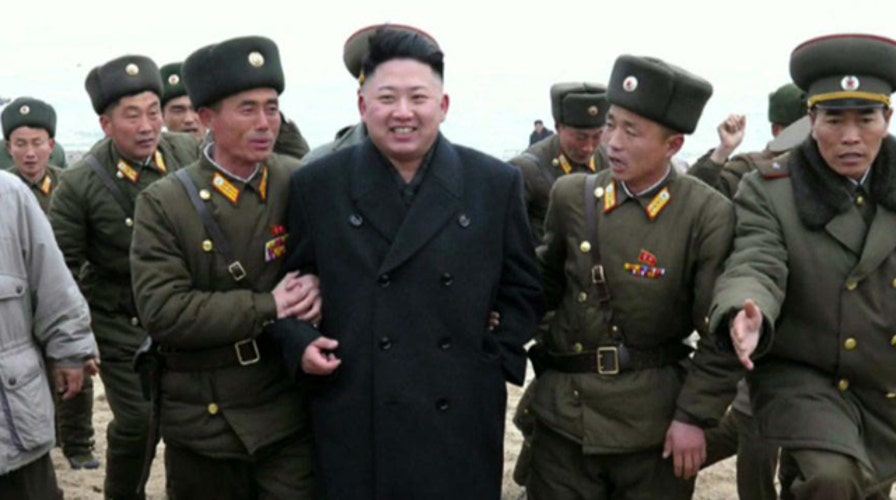Could the US see another Korean War?
Because You Asked: Will more troops be sent to South Korea?
Top U.S. intelligence officials testified Tuesday that they're "very concerned" the "belligerent" rhetoric out of North Korea could presage an attack on its southern neighbor.
Director of National Intelligence James Clapper, along with the heads of the CIA and FBI, delivered the intelligence community's overview of global threats before the Senate Intelligence Committee. They were pressed on the recent and persistent warnings from Pyongyang, which just announced it was "completely scrapping" the 1953 armistice that ended the Korean War.
Asked whether the regime could take "provocative action" that leads to hostilities with South Korea, Clapper said "absolutely."
"The rhetoric, while it is propaganda-laced, is also an indicator of their attitude and perhaps their intent," Clapper said. "I am very concerned about what they might do."
Specifically, he warned of the possibility of "provocative action against the South."
The newly confirmed CIA Director John Brennan said he agreed with Clapper's assessment.
Clapper also warned, early on in the hearing, about the impact from sequestration cuts, forecasting a "gradual" and "almost invisible" impact on intelligence gathering -- until it's too late. He predicted "the degradation to intelligence will be insidious."
His testimony spanned the globe, putting a point on the threat posed by cyber-attacks and an emerging black market for cyber-attack tools. He also warned of threats from a now-scattered Al Qaeda and its adherents, as well as the turmoil in Arab Spring nations.
North Korea, though, has been steadily escalating its threats over the past few weeks. The Obama administration on Monday slapped new sanctions against North Korea's primary exchange bank and several senior government officials as it expressed concern about the North's "bellicose rhetoric."
In written testimony, Clapper said Pyongyang views its nuclear capability as "intended for deterrence, international prestige and coercive diplomacy."
He continued: "Although we assess with low confidence that the North would only attempt to use nuclear weapons against U.S. forces or allies to preserve the Kim regime, we do not know what would constitute, from the North's perspective, crossing that threshold."
North Korea, led by its young leader Kim Jong Un, has defied the international community in the last three months, testing an intercontinental ballistic missile and a third nuclear bomb.
The threat report said North Korea has exported ballistic missiles and associated materials to a number of countries, including Iran and Syria. It also displayed what appeared to be a road-mobile intercontinental ballistic missile and put a satellite in orbit with a launch vehicle.
"These programs demonstrate North Korea's commitment to develop long-range missile technology that could pose a direct threat to the United States, and its efforts to produce and market ballistic missiles raise broader regional and global security concerns," the report said.
Clapper testified with Brennan and FBI Director Robert Mueller.
In assessing Iran, the report stated flatly that Tehran is developing nuclear capabilities to enhance its security and influence and "give it the ability to develop a nuclear weapon." But the report stopped short of saying a decision has been made.
"We do not know if Iran will eventually decide to build nuclear weapons," the report said.
Clapper explained that in the past year, Iran has made progress in working toward producing weapons-grade uranium. However, the report said Iran "could not divert safeguarded material and produce a weapon-worth of weapons-grade uranium before this activity is discovered."
The assessment on Iran comes shortly before President Obama's trip to Israel, where Prime Minister Benjamin Netanyahu has warned that the world has until this summer -- at the latest -- to keep Tehran from building a bomb. The Israeli leader repeatedly has indicated Israel is willing to strike militarily to stop Iran, a step that would likely drag in the United States.
The report said terrorist threats are in transition with an increasingly decentralized global jihadist movement. The Arab Spring, however, has created a spike in threats to U.S. interests in the region "that likely will endure until political upheaval stabilizes and security forces regain their capabilities."
The Associated Press contributed to this report.





